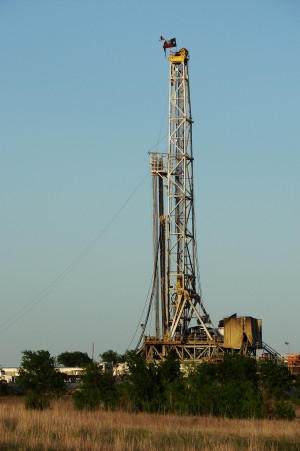Report: EPA Followed Rules in North Texas Drilling Case
The U.S. Environmental Protection Agency was legally justified in issuing — and later withdrawing — an emergency order against a Fort Worth-based driller following a 2010 complaint of groundwater contamination in North Texas, the agency’s internal watchdog said in a report released Tuesday. But questions linger the about the source of the contamination, it added.
The findings come 18 months after six U.S. senators, including John Cornyn, called for an inquiry into the agency’s handling of a case that rose to prominence in the national discussion of the impacts of natural gas drilling.
In the report, the Office of Inspector General said officials at EPA Region 6 “conformed to agency guidelines, regulation and policy” when they charged Range Resources with contaminating two Parker County wells with benzene, methane and other substances.
“Test results on November 16, 2010, showed the presence of chemical contamination in both wells. The contamination levels indicated a risk to a drinking water source — the aquifer and the wells drawing from it,” the report said. “The methane in the wells presented an explosion hazard, and benzene presented health hazards.”
Range says that the gas was present in the water before it arrived, and that drilling was not to blame.
The inspector general’s report also concluded that the EPA correctly determined that the Texas Railroad Commission, which it has delegated to protect certain water quality laws, had no immediate plans to act on the case.
Texas regulators did their own investigation and found no evidence that Range had contaminated the water. The Railroad Commission voted in March 2011 to clear the company of the charges.
“We’ll see which is the real protection agency, and I’d say it’s the Railroad Commission of Texas,” then-Commissioner Elizabeth Ames Jones said after the vote.
That echoed the sentiment of the Republicans in Congress and a long list of Texas officials who blasted the initial EPA investigation, calling the findings scientifically unsound and a politically motivated assault against the oil and gas industry.
Under the EPA order, Range would have had to provide drinking water to residents of two homes in Parker County whose water wells the agency said had been contaminated. But the agency withdrew the order in March 2012 under a settlement in which Range agreed to test 20 water wells every three months for a year and share the data with the EPA.
That decision was spurred by fears of costly litigation, the belief that homeowners’ health risks had been reduced and Range’s willingness to monitor the wells, the inspector general’s report said, citing interviews. The decision was within the EPA’s purview, the report added, because the agency’s guidelines do not address withdrawing an order.
“However, other issues remain,” the report said. “We believe that the EPA needs to implement cost-effective steps to better gauge the risk and document and disseminate its findings to affected residents.”
The EPA has said there is no evidence of widespread contamination in the area. The inspector general, however, raised questions about the quality of the data Range collected.
After reviewing a draft of the report in September, the EPA agreed that it should more closely monitor the data collection. The agency recently reviewed Range’s data and found that it was lacking in “some of the required quality assurance information,” the report said.
Range said it is still reviewing the inspector general’s report.
“We agree with the Texas Railroad Commission’s determination that Range’s activities did not cause or contribute to the long-standing matter of naturally occurring methane in the Trinity aquifer, and we’re pleased that when EPA headquarters examined the facts of the case, they fully withdrew their order,” a spokesperson said in an email.


